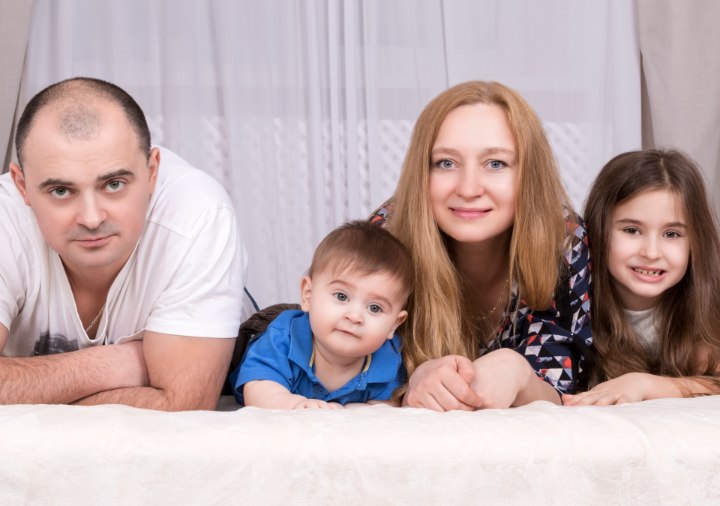Hair Loss in Teenagers and Adults

Whilst everybody loses a small amount of hair each day, an abnormal amount of hair loss, which results in extremely thin hair and even bald patches occurring, can cause high levels of anxiety and a yearning to know what is causing clumps of hair to fall out and clog up the plughole. Severe hair loss is indiscriminating in age, ethnicity and gender and is a direct result of many different factors.
Although we are the ‘products of our parents’ just because a person’s father was bald by the time he was 31 does not necessarily mean his son will be. Genes can jump, skip and leapfrog generations, and in doing so pinning hair loss down to hereditary is reaped in ambiguity.
Despite the uncertain nature of genes, baldness caused by hereditary, medically referred to as adrogenetic alopecia, is the most common cause of hair loss. Hair loss occurs when a hormone called dihydrotesterone (DHT) bonds the receptor sites on the scalp to the receptor sites on hair follicles which are genetically predisposed to DHT. Such genetically affected hair follicles receive signals which disrupt the normal production of hair growth.
Although both men and women produce DHT, it is more predominant in men, hence why men are more prone to becoming bald than women. Whilst there are no age barriers on when someone may become affected by androgenetic alopecia, it commonly starts in late teens, particularly amongst males.
Hormonal Imbalances:
Whereas hereditary-induced hormonal imbalances are the primary factors contributing towards hair loss within men, temporary hormonal imbalances, resulting from a variety of conditions, are the leading causes of hair loss within women and teenage girls. For example, as hair follicles are particularly receptive to thyroid gland derived hormones, an over active or under active thyroid gland can result in a sudden and severe amount of hair loss.
Child birth results in a sharp decline in the high levels of the estrogen hormone produced in pregnancy, which can often cause hair follicles to fall out at an alarming rate. Women undergoing the menopause often experience dramatic hair loss, as the hormonal imbalance disrupts the hair growth cycle.
Diseases and Medical Conditions:
Certain illnesses and medical conditions can be a common cause of hair loss and baldness. Severe infections and flu can result in hair follicles entering a ‘resting phase’, which causes an abnormal amount of hair loss. A similar process can occur in people with diabetes and kidney or liver disease.
A skin disease known as alopecia areata often causes hair loss to occur, not only on the head but also on the body. Trichotillomania is a psychological condition, which results in hair loss through a sufferer’s relentless desire to pull their own hair out.
Medication:
Some treatments of cancer such as chemotherapy thwart the dividing of hair follicles and cause the hair to fall out. Medications to treat acne can also have a negative effect on hair growth and cause hair loss amongst teenagers. Many diet pills contain amphetamines, which can also result in increased hair shedding.
A Poor Diet:
Vitamins, protein and minerals are vital components in maintaining healthy and vibrant hair. As hair is made up of keratin, a form of protein, it needs these essential nutrients to stimulate re-growth. A diet lacking nutrition and nourishment does not provide for healthy re-growth and can often cause hair to fall out.
Hair Products and Styling:
Cosmetic treatments applied incorrectly can result in major hair loss; likewise the recurrent use of certain hair styling techniques can also cause the hair to fall out.
©hairfinder.com
See also:
Hair loss treatment
Genetic hair loss